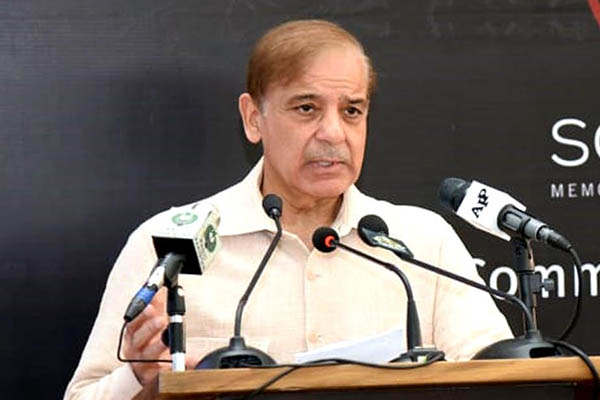
Photo courtesy PID
The federal cabinet on Thursday banned the import of hundreds of items in 33 categories for the next two months in a bid to reduce the country’s import bill and prevent a looming default amidst a precarious economic situation.
“My decision to ban import of luxury items will save the country precious foreign exchange,” Prime Minister Shehbaz Sharif said in a posting on Twitter. “We will practice austerity and financially stronger people must lead in this effort so that the less privileged among us do not have to bear this burden inflicted on them by the [ousted] PTI government,” he said, adding that the country would overcome all challenges together “with resolve and determination.”
According to a notification issued by the Ministry of Commerce on Thursday night, the categories of items being banned include aerated water and juices; completely built-up cars; sanitary and bathroom wares; carpets—barring those from Afghanistan; chandeliers and lighting devices; chocolates; cigarettes; confectionary items; cornflakes; cosmetics and shaving items; tissue papers; crockery; decorations; dog and cat food; doors and window frames; fish; footwear; fruits and dry fruits; furniture; home appliances; ice cream; jams, jellies and preserved fruits; luxury leather jackets and apparel; mattresses and sleeping bags; frozen or processed meat; mobile phones; musical instruments; pasta; arms and ammunition; shampoos; sunglasses; sauces; and traveling bags and suitcases.
The ministry noted that the prohibition would not apply to any imports in Pakistani rupees or imports through barter mechanism by land routes.
In a press conference, Information Minister Marriyum Aurangzeb claimed the banned items did not include any products that were widely used by the general public. Maintaining that the country was going through an “emergency” situation, she said that the entire nation must be willing to make some sacrifices in the national interest.
“We have to reduce our dependence on imports,” she said, adding the government was formulating an export-oriented policy to overcome the trade deficit. She claimed that the initiative would help local industries prosper, which would also boost employment.
Pakistan’s total import bill in April was roughly $6.6 billion. Of this, $2.2 billion was petroleum products alone, which are being heavily subsidized by the government. According to local media, the ban on “non-essential” items would save less than $300 million per month—a minor dent in the overall import bill. However, in her press conference, Aurangzeb claimed the monthly impact would be $500 million. The government has yet to take any steps to curtail its import of petroleum products despite experts proposing fuel conservation measures such as reducing the working week or subsidizing public transport to boost its usage.
According to the cabinet decision, the ban would be revisited after two months.
